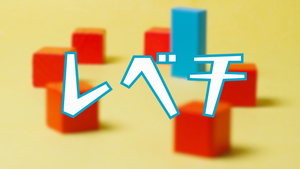What Does "レベチ" Mean?
Derived from a shortening of "レベルが違う" (level ga chigau), which means "different level," "レベチ" is used to describe something that is way beyond the norm, especially in terms of quality, skill, or performance.
Usage and Emotions
- Admiration and Praise: "レベチ" is often used when something is exceptionally good or impressive. This could be in reference to an athlete's outstanding performance or a striking piece of art.
- Surprise: The term can also express surprise at something that is unusual or extraordinary.
- Respect: It's used to acknowledge someone's abilities or achievements that are of a very high standard, like a skilled artisan or a successful business person.
Examples in Context
After understanding how "レベチ" is used to express admiration, surprise, or respect, let's look at some practical examples to see how this slang is used in everyday Japanese:
-
In Movie Discussions:
- あの映画のストーリー展開、完全にレベチだった。
- "The plot development of that movie was completely next level."
- あの映画のストーリー展開、完全にレベチだった。
-
Commenting on Someone's Intelligence:
- マイクくんは頭の良さがレベチだから時々何言っているかわかんない。
- "Mike's intelligence is so next level that sometimes I don't even understand what he's saying."
- マイクくんは頭の良さがレベチだから時々何言っているかわかんない。
-
Describing Food Experience:
- 日本で食べた寿司はレベチで美味しかった。
- "The sushi I had in Japan was next level delicious."
- 日本で食べた寿司はレベチで美味しかった。
-
Reflecting on a Live Performance:
- 生で見たテイラースイフトはレベチでかっこよかった!
- "Seeing Taylor Swift live was next level amazing!"
- 生で見たテイラースイフトはレベチでかっこよかった!
These examples illustrate how "レベチ" is used in various contexts, offering a clearer picture of its versatility in the Japanese language.
Conclusion
"レベチ" is a vivid example of the dynamic nature of language and its ability to convey complex emotions and experiences. As you explore the Japanese language, incorporating such slang can add color and authenticity to your conversations.
あーレベチにおいしい焼肉が食べたくなってきた🤤

Check out the episode where 'レベチ' is featured


